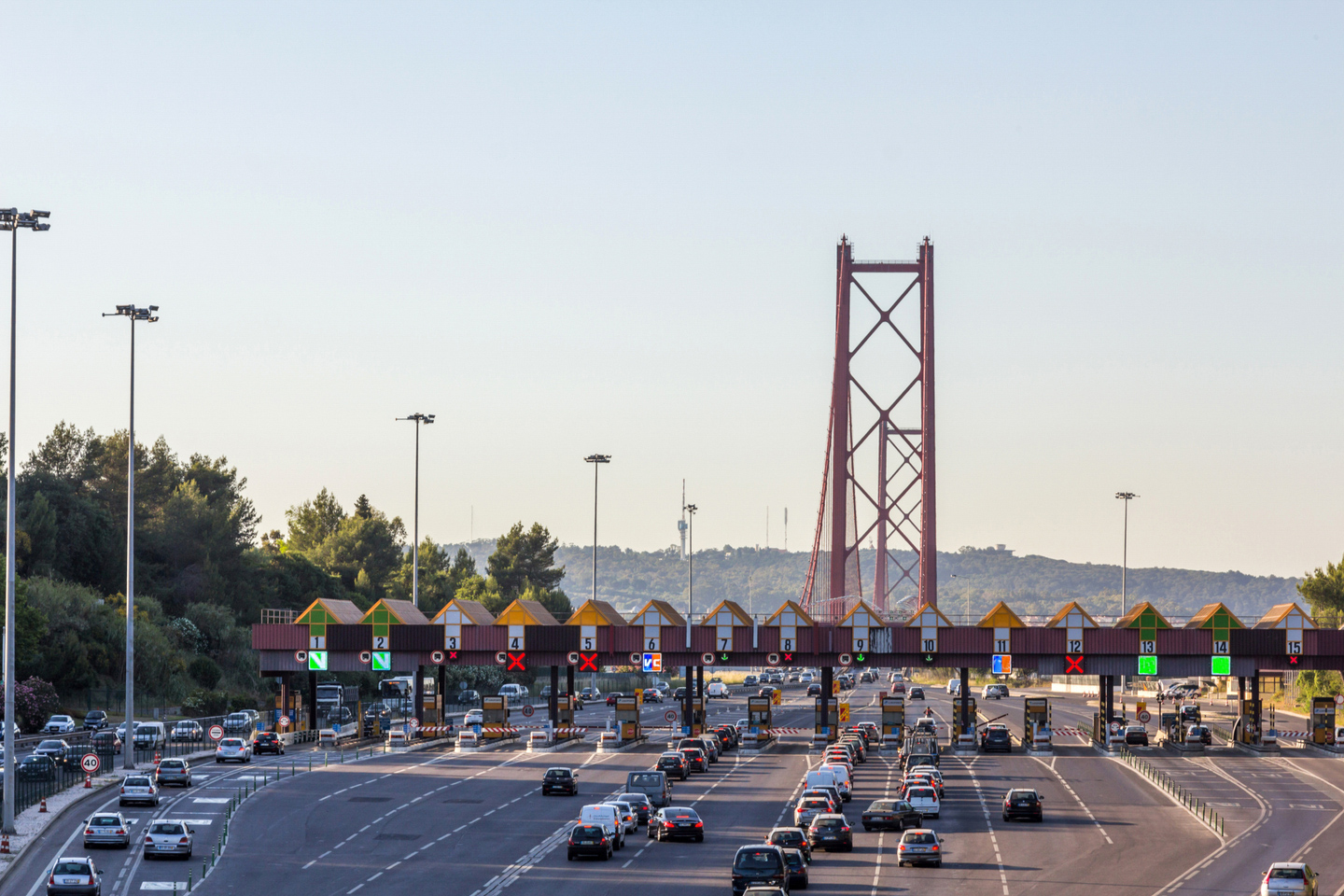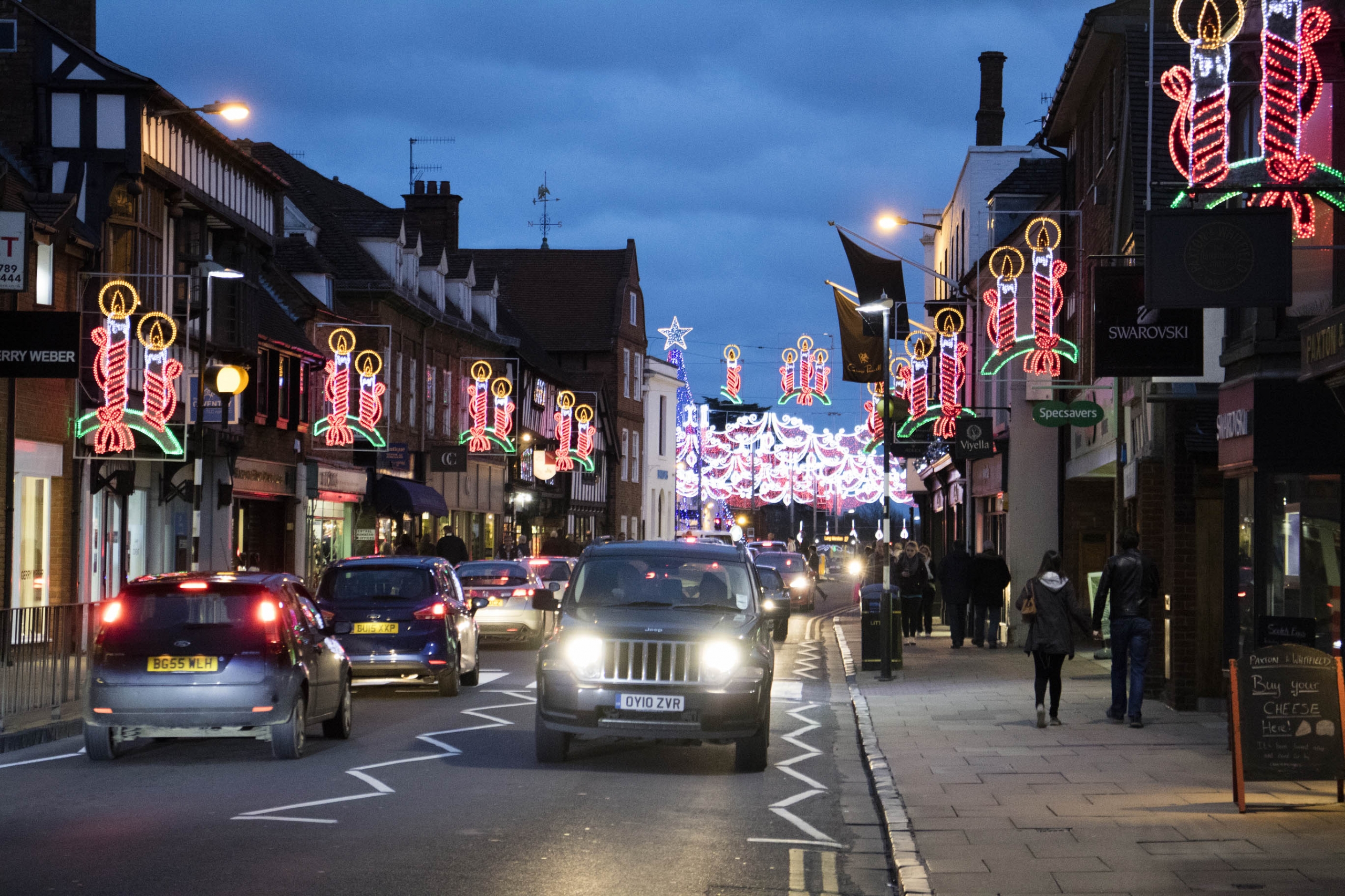A lover of the sun-drenched Algarve? Or maybe you’re a surfer hoping to hit some waves at the beaches around Peniche? Whatever your poison, make road tripping around Portugal that little bit easier by swotting up on the country’s toll road system.
From where these roads are to how exactly you pay for them, here’s our simple guide on everything you need to know about Portugal’s toll routes.
First things first, where are Portugal’s toll roads?
If you’re set on a driving holiday around Portugal, you’re in for a treat as its amazing cities and gorgeous countryside are all easy to access via a network of well-maintained roads. A good chunk of these are toll roads (known in the local lingo as Autoestradas), a system which you’ll likely have come across in both the UK and other European nations.
The idea behind toll roads is that you pay to use a section of a motorway, with the money raised going to the local government to help pay for its upkeep. Portugal’s toll roads are a little more confusing than most due to the fact they’re largely electronic. There are numerous toll roads crisscrossing the country, however the major ones include:

What’s an electronic toll road?
Unlike some toll roads where you’ll come across booths every so often where you can pay for using the route, electronic toll roads allow you to pay for how far you’ve driven after you’ve completed your journey.
How much will I have to shell out to use them?
The price of Portugal’s toll roads differ depending on the type of vehicle you’re driving and how far you’re going. Generally, the longer you drive on a toll road for, the more expensive it will be. For example, if you take the A2 toll road from the Algarve to Lisbon, you’ll pay just under €20 in tolls.
How do I pay for toll charges in Portugal?
There are a couple of different ways to pay for your Portugal road tolls. For roads which haven’t yet gone electronic, you’ll come across booths where you can pay in cash or using a credit/debit card (note that not all booths will accept non-Portuguese bank cards).
On the updated toll roads, there are no toll booths. Instead, sensors have been set up at regular intervals along the roads which record when you enter and exit a toll route. How you pay the fee depends on if you’re driving.

A car registered in Portugal – Tolls can be paid in person at a local post office or at a registered Payshop. You won’t be able to pay for them until 48 hours have passed, and you’ll then have just five days to pay.
Alternatively, you can fit your car with a transponder (ask about renting one when you pick up your vehicle) which you preload with credit. It’ll record your toll road usage and automatically deduct the cost from your credit allowance. It also entitles you to use the special ‘Via Verde’ lanes at any toll stations you might come across during your travels.
A car registered in another country – If you’re on an epic European road trip and have hired your car from another country, you’ll have a few options when it comes to toll payments. One of the easiest options, though, is to buy a Toll Card from a local post office, tourism office, service station or an Easy Toll Welcome Point. You’ll add pre-paid credit to it and then activate it over text message. Simple!
How do I check if my payment has worked?
Worried about what you’ve spent? Thankfully, it’s super easy to double check that you don’t have any outstanding toll charges. Just head over to the Portugal Toll Payment Portal and type in your number plate info.
What are the benefits of using the Portugal toll roads?
- Shorter journey times as you’ll be able to go at higher speeds on straighter roads.
- Less worry about damaging your car on poorly maintained roads.
- More fuel efficient as you’ll be able to keep at a constant speed throughout most of your journey.

Can I avoid Portugal’s toll roads?
Not a fan of paying for the roads you drive on? We get you. Luckily, for every toll road in Portugal, there’s usually another route you can use that’ll be completely free of charge. Be warned though: the toll-free roads are not as well-maintained and are usually longer routes. If you’ve got the time, though, they can be great options and perfect for viewing more of Portugal’s stunning rural scenery!
Check list of things to know before a Portugal road trip
- Decide how you’re going to pay for Portugal’s toll roads before you set off.
- Ask a Europcar representative about hiring a transponder to pay for your toll road charges.
- Consider using non-toll roads if you’ve got time to spare.
- Remember to regularly check the Toll Payment Portal to make sure you haven’t got any outstanding charges to pay.
Now you’re clued up on paying for Portugal’s toll roads, why not plan out an epic journey around this beautiful country in your hire car? Take a peek at our discovery guide of the magnificent Douro Valley for some major travel inspiration.
More from Europcar
-

How do I pay my Dublin M50 toll?
Dublin’s M50 Toll is located between Junction 6 (N3 Blanchardstown) and Junction 7 (N4 Lucan).
-

Driving Home for Christmas: Games to Entertain the Kids on the Road
-

How to beat your jet lag at Roissy-Charles-De-Gaulle?
-

Everything You Need to Know About Hybrid Car Rental
These days, drivers have a wide range of choices when it comes to what type of vehicle they drive. Traditionalists may prefer a car with the reliable power of a standard combustion engine.

